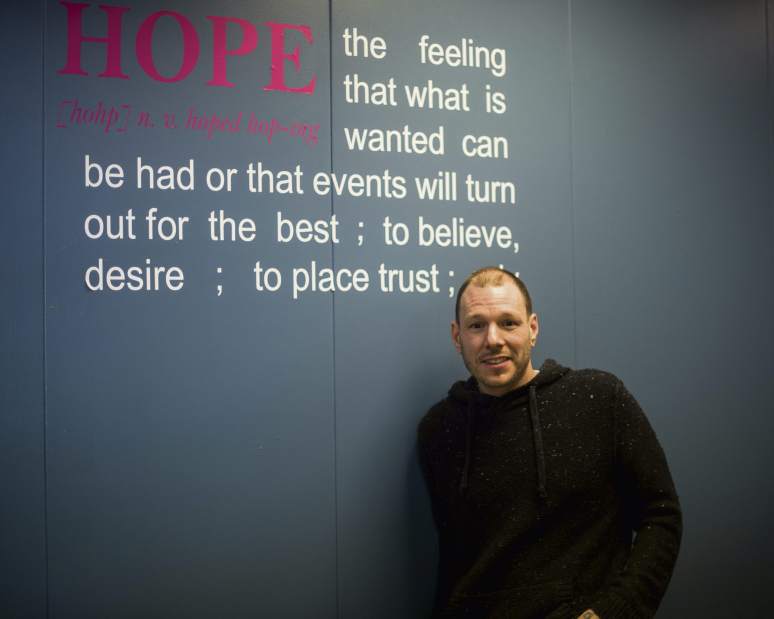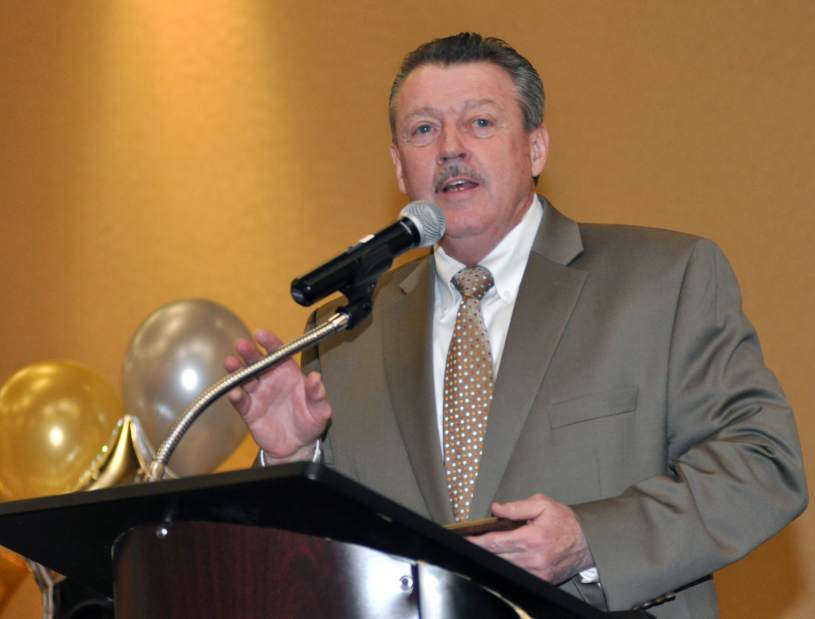Addicts who commit petty crimes should go to treatment, not prison, McKeesport state Sen. Brewster says
State Sen. Jim Brewster, D-McKeesport, is urging the state to take even more aggressive steps to target opioid and heroin abuse than those included in Gov. Tom Wolf's recent disaster declaration.
Shortly after Wolf's declaration last week, which expanded access to overdose-reversal drug naloxone and made other changes meant to ease access to treatment, Brewster introduced a proposal to mandate treatment for addicts who support drug habits with repeated thefts and other nonviolent petty crimes.
“Sooner or later we've got to take that giant step and say, ‘How do you stop this?'” Brewster said in an interview.
His proposal would send addicts to treatment centers for a minimum of 360 days as an alternative to prison, and they could be kept longer if a doctor says they are not yet cured.
Aaron Arnold, executive director of Prevention Point Pittsburgh, a nonprofit that provides public health services to people who use substances, said the proposal goes in the wrong direction.
“Mandating treatment is the exact opposite of what you would want to do in this situation,” Arnold said. “There is a wealth of evidence that compulsory or forced treatment doubles a person's chance of dying of an overdose.”
Inpatient treatment centers most often rely on abstinence-based therapies, which he said are less effective than medication-based therapies. Users who are forced to go through the programs might not be discouraged from using drugs after their release, but their tolerance is lower when they leave, making them more susceptible to overdose, he added.
Plus, there is already much more demand for treatment than there are facilities that can provide it, he said, and Brewster's proposal would give beds to people who don't want treatment while those who do want it wouldn't be able to get it.
Brewster, a former mayor of McKeesport, has watched drug problems accelerate in his community over the last few years. He has received calls from parents and family members asking how they can get addicted loved ones into treatment programs or even jail – any way to shelter them from overdose.
“I think if you were to poll any family member or parent who has gone through this, I think they'd all tell you they had reached that point at some point in time,” he said.
Those types of family concerns likely are driving several mandatory treatment and involuntary commitment proposals circulating in the General Assembly right now, said Elizabeth Randol, legislative director of the American Civil Liberties Union of Pennsylvania.
But it's the wrong approach, Randol said.
“There has to be a clear and present danger that's imminent to commit someone involuntarily,” she said.
She said the bill's language would accomplish the opposite of Brewster's intention to treat addicts like people with a sickness instead of as criminals.
People who commit low-level misdemeanors typically face a maximum sentence of a year in jail or a fine of a few hundred dollars, but Brewster's bill would criminalize being an addict by instituting a commitment of a year or longer simply because of the involvement of drugs, she said.
“We don't criminalize the status of human beings, like if they are an addict. That's not how the criminal justice system works,” she said.
The language in the bill opens the door to involuntary treatment if a person who recently overdosed is only charged with a misdemeanor, not restricting it to crimes for which a person has been convicted, which creates due process concerns, she said.
Brewster said the commitment period is based on advice from medical experts, who he said have told him that recovery often takes nine to 15 months for people with serious addictions.
Joe Pagano, 42, of Charleroi deals with addiction every day as the president of Club Serenity, a nonprofit providing recovery support.
Pagano is in long-term recovery himself, and said that an escalating 19-year addiction to opioids and heroin drove him to steal from his family and friends and others, leading to jail and prison.
“I was a good kid. I come from a good family. I was a Boy Scout, I was an Eagle Scout. And I did this. And once drugs came in, I was a slave to the drugs,” he said.
Pagano said he tried lots of short-term treatment programs but that none worked. He struggled to pay for them and to find treatment facilities with the capacity to treat him.
He said prayer led him to turn himself in for a robbery and that he developed the resolve during a two-year prison sentence to recover after his release in 2013.
He said he has mixed feelings about involuntary treatment, having seen people released from jail or treatment immediately use drugs after getting home.
“I'm sure there are cases where somebody needs to be forced. But you can't force somebody to be clean,” he said. “There is no cure-all.”
Brewster said he hopes the treatment proposal, which he introduced along with bills to crack down more forcefully on drug dealers and to make other changes, will serve as a jumping-off point for more serious discussions among legislators moving forward.
He acknowledged concerns about how to pay for proposals like his, saying that more people could get treatment through Medicaid and by redirecting some of the drug-related money police recover. He said more treatment centers are needed, and that the added demand from more treatment should spur more facilities to open.
Wes Venteicher is a Tribune-Review staff writer. Reach him at 412-380-5676, wventeicher@tribweb.com or via Twitter @wesventeicher.


